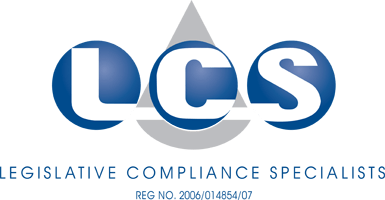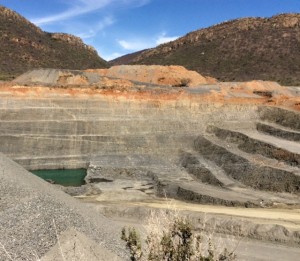The September/October period had Government Notices published which have an impact on both mining and non mining operations.
In terms of the Occupational Health and Safety Act, Notices affecting lifts and escalators and driven machinery were published.
For mining operations, 4 new Mandatory Code of Practice Guidelines were published. These MCOP’s now become a legal requirement in terms of Section 9 of the Act.
Amongst the published Notices which have an indirect bearing on health and safety legal liability we find Notices dealing with Standards and the Occupational Diseases in Mines and Works Act.
Regards,
Jaco Swartz
Managing Director
The Minister of Health has retroactively increased the levies on controlled mines and works. The increase amounts to an average increase of 17,08% per risk shift worked.
The Department of Labour has published guidance notes on the application of the Lift, Escalator and Passenger Conveyor Regulations 2010.
The stated goal of the Guideline is to give a simple language explanation of the working of the Regulations. It cannot, however, take any precedence over the Gazetted Regulations and should be seen as a guideline and not a definitive interpretation of the Regulations.
The guideline addresses (amongst others) the following:
1. The required competence of various role players under the Regulations (competent operator etc.) 2. Notes on the meaning of definitions used in the Regulations 3. Explaining the area of application by referring to temporary lifts and lifts in private dwellings 4. Broad reference to the requirements in terms of the incorporated SANS codes 5. Duty to upgrade all lifts within 5 years to the standards contained and referenced in the Regulations 6. SANAA as the national body responsible for the accreditation of accredited inspections service providers
The Chief Inspector, Mr. Tibor Szana, has given notice in terms of Section 43 of the Act. The effect of the Notice is to extend the requirements for the accreditation of Approved Inspection Authorities to include accreditation by SANAS.
The specific AIA’s that will be affected by the new requirement is those AIA’s dealt with in the following Regulations:
1. Asbestos Regulations 8, 18 and 21 2. Hazardous Biological Agents Regulations 12 3. Hazardous Chemical Substances Regulations 8 and 12 4. Lead Regulations 7 and 14 5. Noise Induced Hearing Loss Regulations 14
The Chief Inspector of the Department of Labour has published a correction notice in terms of the Driven Machinery Regulations 2015 (as published 24 June 2015). The impact of the Correction Notice is the following:
Persons or organisations who apply for approval as lifting machine operator trainers in terms of the National Code of Practice for Training Providers of Lifting Machine Operators will need to submit a certificate issued by the Transport SETA.
This implies that the Transport SETA has been authorised to carry out the accreditation. This implies that requests for approval by the Department of Labour will have to accompanied by a Transport SETA certificate.
In a second Correction Notice dealing with the Driven Machinery Regulations, the Chief Inspector has made corrections dealing with 2 definitions and one Regulation. These are:
1. Definition of Competent Person: The previous definition is replaced with a definition aligned with that found in the Construction Regulations. The definition still refers to knowledge, training, experience and qualifications, but specifically now refers to the NQF. It states that where training or a qualification is registered on the NQF, that training or qualification becomes a legal requirement. In addition it now specifically states that the person must have knowledge of the Act and Regulations, implying that formal legal training must be proven. 2. Definition of Safe Working Load: The definition itself remains the same, but now expressly refers to Working Load Limit which will have the same meaning. 3. The appeals process in Regulation 21 (where Lifting Machine Entity or training provider registration is withdrawn) has been amended. Where previously the appeal was to be brought to the Director General, appeals are now to be brought in writing to the Labour Court.
The Chief Inspector, Mr. David Msiza, has published a Guideline for Cyanide management in terms of Section 9(2) of the Act. This implies that a Mandatory Code of Practice must be implemented before 30 November 2015.
The MCOP deals with the procurement, supply and distribution of cyanide in plant processes and tailing streams. As such, the MCOP (among other issues) must address:
1. On mine transport 2. Storage 3. Procedures for use 4. Inspection and maintenance of equipment 5. Leak detection and spills management 6. Emergency management and response.
The Guideline specifically includes off mine impacts to be considered.
A MCOP Guideline for PPE for use by women in mining has been published. The effective date of the MCOP is 31 December 2015.
The MCOP deals with the specific challenges women employed in mining face as a result of their anatomical and physiological makeup. The MCOP must, amongst other issues, address:
1. Duties and responsibilities (the Guideline identifies employers, managers and supervisors and women in mining.) 2. The selection, provision and maintenance of PPE. 3. Training requirements.
The MCOP Guideline became applicable on 31 August 2015 despite being Gazetted on 25 September 2015.
Note that this Guideline will not apply to surface traction. Issues to be addressed in the MCOP include:
1. RBE design and specifications 2. Locomotives 3. Braking systems 4. Rolling stock 5. Rail bound cycles 6. Rail infrastructure 7. Haulages and associated infrastructure 8. Operational requirements (traffic management plan etc.) 9. maintenance and modification 10. Personnel (selection criteria etc.)
Anew Guideline for a Mandatory Trackless Mobile Machinery Code of Practice has been published. Although only Gazetted on 25 September, the MCOP too effect on 31 August 2015.
The MCOP should be seen within the context of the Mine Health and Safety Act Regulations Chapter 8.10. Some of the more pertinent issues dealt with in the MCOP Guideline include:
1. Design and specification register. This register should list all TMM’s in operation on the mine and requires detailed information to be kept (including maximum designed speed etc.) 2. Testing of braking systems and the period fro which documented results are to be kept 3. Prevention of operation by unauthorized persons 4. Use of tow-bars and coupling devises only where manufactured in terms of an accepted national/international standard or where approved by a registered professional engineer 5. Where remotely controlled TMM’s are measures to be implemented to ensure that only authorised persons are issued with controls and the placement of warnings where remotely controlled TMM’s are used. 6. Procedures for the installation, operation and maintenance of proximity detection and collision avoidance systems 7. Procedures for acknowledgement by operators of their authorisations 8. Standards for marking of dangerous areas in roadways etc. 9. Safe operation on inclines and declines 10. Issue, use and control of PPE
FOR ANY FURTHER INFORMATION, COMMENTS OR QUERIES, PLEASE DO NOT HESITATE TO CONTACT THE WRITER OR VISIT OUR WEBSITE AT WWW.LEGALCS.CO.ZA
Regards,
Jaco Swartz Managing Director Legislative Compliance Specialists (Pty.) Ltd. 011 704 4814 082 898 9463
|
||||||||||||||||||||||||||||||||||||||||||||||||||||||||||||||||||||||||||||||||||||||||||||||||||||||||||||||||||||||||||||||||||||||||||||||||||||||||||||||||||||||||||||||||||||||||||||||||||||||||||||||||||||||||||||||||||||||||||||||||||||||||||||||||||||||||||||||||||||||||||||||||

